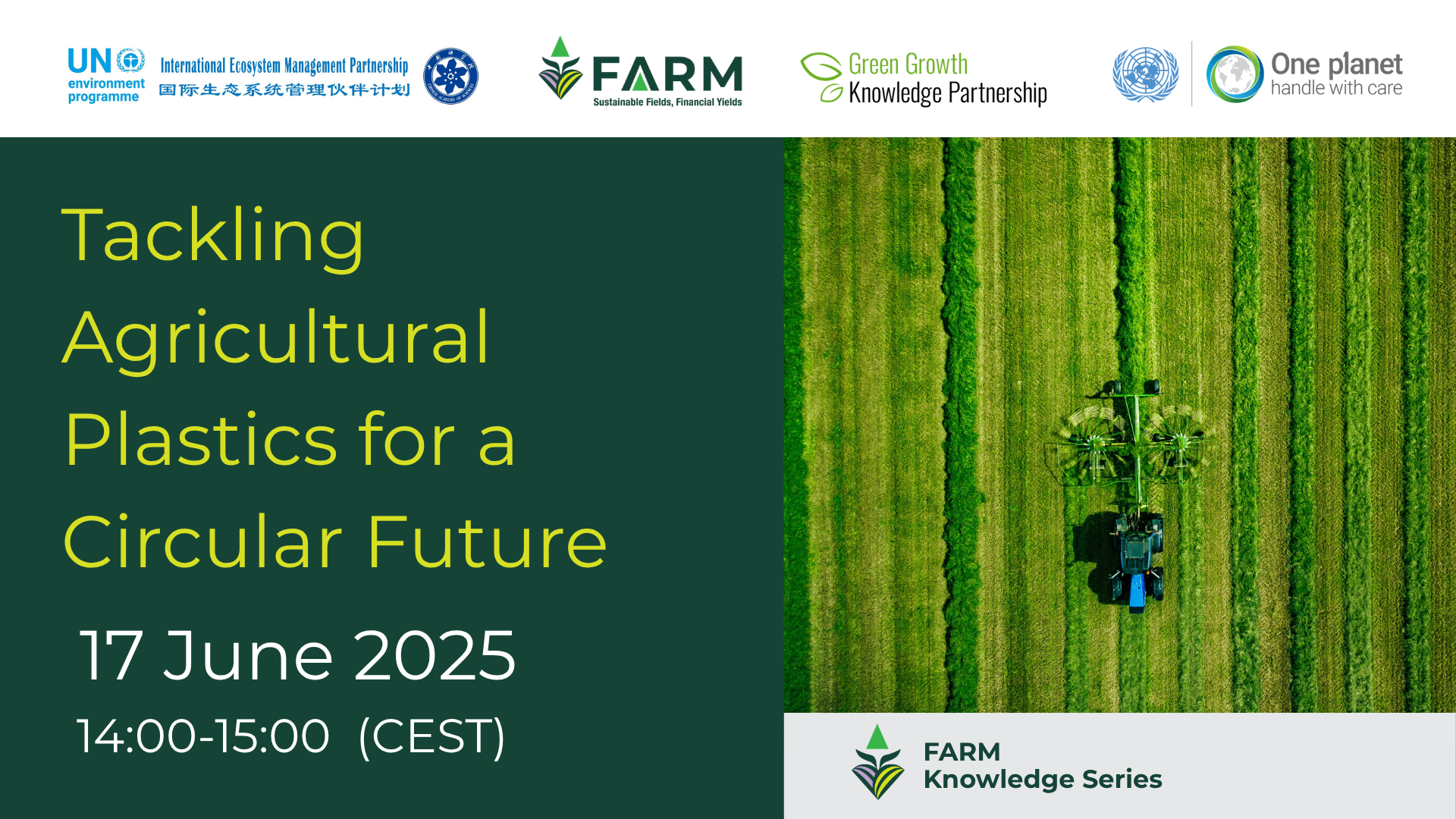Knowledge Series: Tackling Agricultural Plastics for a Circular Future

Plastics are integral to agricultural systems, with an estimated 12.5 million tonnes used annually. The demand for greenhouse, mulching, and silage films is projected to grow by 50% between 2018 and 2030. However, the extensive use of plastics has led to significant soil pollution, including microplastic contamination, and damaged soil health by altering its structure, bulk density, and water-holding capacity.
Data suggest that, despite their extensive use, only a small fraction of agricultural plastics is collected and recycled, primarily in developed economies. In many regions, plastics are more likely to be burned, buried, or sent to landfills, with no consistent record keeping of these practices.
Despite these pressing challenges, agricultural plastics remain a low-priority concern. There is an urgent need to raise awareness, invest in alternatives and new technologies, and develop practical, scalable solutions.
While many countries still lack accessible options to reduce or eliminate agricultural plastics, scalable alternatives do exist and are available through various programs. However, these solutions have yet to drive systemic policy changes, transform farming practices and gain widespread attention.
This webinar will explore the urgent impacts of agricultural plastics and actionable solutions. Presenters and panelists will discuss strategies grounded in circular economy principles, focusing on prevention, recyclability, regulation, and waste management.
This session is part of the webinar series “Advancing the Transition to a Pollution-Free Agrifood Industry through Circular, Regenerative, and Bioeconomy Approaches" organised by UNEP in collaboration with the One Planet Network, International Ecosystem Management Partnership, Green Growth Knowledge Partnership and FARM programme.
Join the webinar to learn more about the challenges, discover innovative solutions, and help shape a more sustainable future for agriculture.